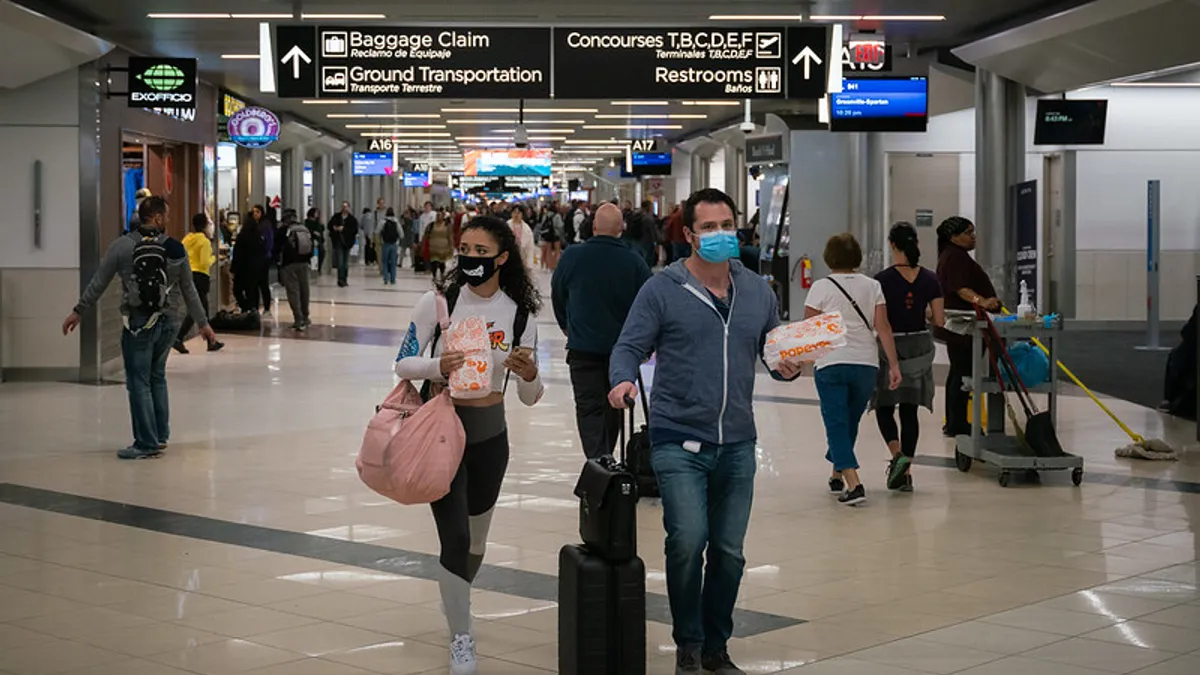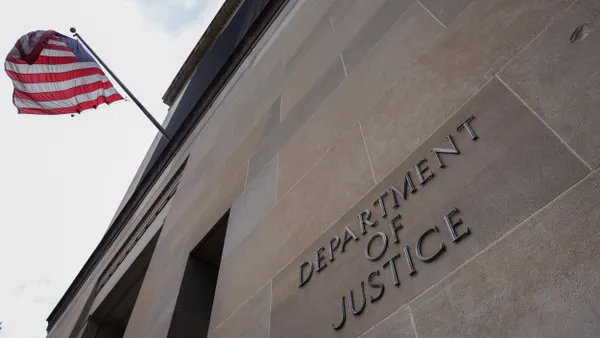The National League of Cities (NLC) is ramping up available data for U.S. leaders to assess the adoption of local policies regarding coronavirus, and the public perception of these efforts.
NLC partnered with Bloomberg Philanthropies to build the COVID-19: Local Action Tracker, a searchable spreadsheet of data regarding the policy actions that cities across the U.S. are enacting to protect residents and surrounding regions from contracting COVID-19. The tracker, released on Monday, currently includes information on 464 policy actions from nearly 180 cities with populations of 30,000 or more.
"With the fast moving policy environment, what we were all observing was that cities didn’t have a centralized space where they could see what was happening in other cities, and the policies city leaders were needing to implement," Brooks Rainwater, senior executive and director of the Center for City Solutions at NLC, told Smart Cities Dive. The tracker was born to fill this void.
Policy areas listed in the tracker include "flattening the curve," "individual economics" and "communication." While some policies are becoming standard practice in U.S. cities (like emergency declarations and stay-at-home orders), the tracker also indicates a number of unique efforts imposed to assist targeted communities.
Rainwater pointed to Burbank, CA's "Project Home" program, listed in the tracker as an effort to connect residents 55+ years of age with volunteers who can help them run errands. "Something like that is really the type of promising practice other communities could easily implement without a lot of shifts or policy changes," he said.
NLC and Bloomberg Philanthropies scraped available data for the first iteration of the tracker, but as days pass and more policies are issued, cities are increasingly submitting information to be included in daily updates. Rainwater said the organizations will "more deliberately start reaching out in the coming days" to cities not yet listed on the resource.
To compliment this tracker, NLC also released the results of a survey showing how the American public is responding to such an influx of local policy actions nationwide. More than 2,200 respondents participated in the Morning Consult survey, which found Americans have greater trust in local governments to deal with the coronavirus than in the federal government.
The survey found 52% of respondents feel local governments are prepared to handle the outbreak, while only 47% feel the federal government is prepared. Similarly, 52% of respondents feel local governments' responses to the outbreak thus far are "good" or "excellent," compared to 47% of respondents who feel positively about federal government responses.
In a targeted assessment of local government collaboration, respondents are overall confident in how cities are working with stakeholders — especially the Centers for Disease Control and Prevention (CDC), state governments and county governments — to mitigate the spread of coronavirus.
And in assessing how local governments can fund responses, a striking 80% of respondents support cities putting additional funds toward controlling the spread of COVID-19, even if it means imposing a tax hike. So far, no local governments have done this, according to the local action tracker.
Ira Longini, an epidemiologist at the University of Florida and CDC adviser, said on Wednesday that the U.S. may not see its peak death toll from COVID-19 for another three weeks, according to CNN. As governments on all levels increasingly crack down on measures to enforce social distancing and alleviate financial burdens for residents, it will be important for city leaders to leverage available resources, like the policy tracker, to gather ideas and seek guidance.
To keep up with all of our coverage on how the new coronavirus is impacting U.S. cities, visit our daily tracker.












